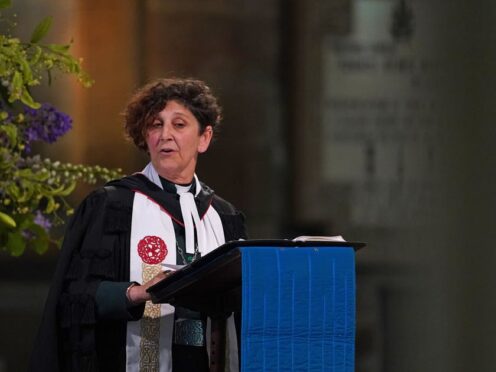A church leader is urging the public to “call out” people who use hostile or dehumanising language towards migrants.
The Right Reverend Sally Foster-Fulton, Moderator of the General Assembly of the Church of Scotland, said uttering such language “diminishes humanity” and it ought to be challenged when overheard.
The moderator said she believes everyone has a responsibility to “create a world where every person is treated with dignity and respect”, but racism, discrimination and prejudice is preventing this outcome.
She was speaking ahead of Racial Justice Sunday on February 11 which provides churches across the UK the opportunity to discuss the unwelcome presence of racism in society and commit to try and stamp it out.
The day of action comes after a former Labour minister last month told the House of Commons she felt asylum seekers in the UK currently face a “similar hostile environment” to Jewish refugees fleeing persecution during the Second World War.
Dame Margaret Hodge, who lost close relatives during the Holocaust, warned MPs “the language we use today matters” and criticised those who speak of asylum seekers “invading” Britain, during the annual Holocaust Memorial Day debate.
Recent Home Office figures show more than 1,000 migrants have arrived in the UK so far this year after crossing the Channel.
The provisional annual total for last year was 29,437, which was lower than the record 45,774 crossings counted in 2022.
The moderator said: “Migration has been an important part of Scotland’s story.
“Over the centuries, many Scots left to start new lives in places like Canada and the USA and in turn many people have come to Scotland to make it their home.
“Sadly, over the past few years, we have seen increasingly hostile and dehumanising language levelled at migrants, refugees, and asylum seekers.

“People coming to the UK have been branded as criminals, as scroungers, and even as part of an invasion.
“This abuse can be found in the pages of newspapers, comments online and increasingly from the mouths of our politicians.
“It’s become so common that we almost don’t notice it anymore.”
Ms Foster-Fulton, who grew up in South Carolina in the USA and moved to Scotland more than 30 years ago after marrying a British citizen, said it is clear not all migrants are treated the same.
“It’s our responsibility to create a world where every person is treated with dignity and respect,” she said.
“It’s especially important in a dangerous world that we ensure that everyone who comes to the UK fleeing war and persecution is granted a generous welcome.”
The moderator went on to urge the public to watch out for family, friends, work colleagues and even local newspapers using dehumanising language to describe or refer to migrants.
“When you hear it, call it out,” she said. “If we let this become part of our normal way of seeing a huge section of the global population, we diminish both our humanity and theirs.”
